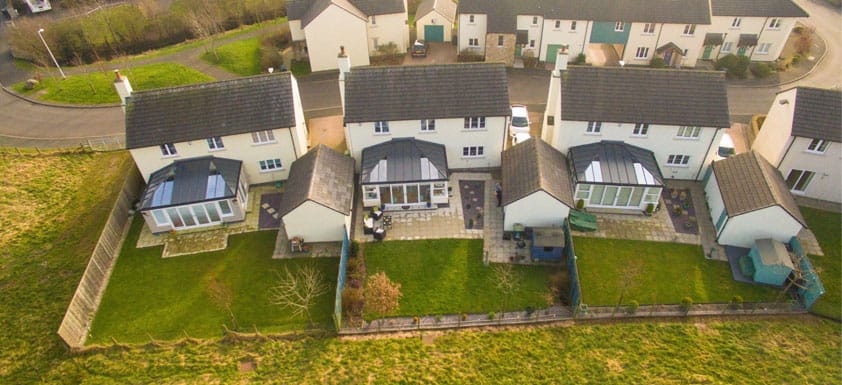Major considerations when planning your conservatory installation

When you embark on your new conservatory or extension project, there are some major considerations you need to make. By being prepared and organised upfront, you’ll be able to ensure your conservatory complies to all relevant legislation. Here at Realistic, we’ve come up with four key things that you should be aware of:

1. Approval from the local water board authority
If you plan to install your conservatory on or within three metres of a public sewer, or within 1 metre of a public lateral drain, you will need to ensure that you receive approval from your regional water board authority. This permission will satisfy a condition within Building Regulation H4, and a building control officer will inspect your installation once complete.
Before commencing your conservatory installation, we will work with you to ensure that the installation will not cause any drainage issues. Any drainage developments required will be quoted up front to avoid any surprises during the project.
One last thing to remember: your extension should never obstruct a manhole or inspection point on a sewer. You must also maintain a 3 metre zone to enable a sewer to be reconstructed in the future if the water board were to deem it necessary.

2. Conservation areas and listed buildings
There is a possibility that your conservatory installation will be subject to “Article 4 Directions”. This will occur if your house is a listed building or situated within an AONB, conservation area or national park.
You will need to seek planning permission for your installation due to the restrictions that apply to homes that fall into this category. Any design will need to be sympathetic to the existing features of your property.
We’ve been installing conservatories in the South West for many, many years and have experience working to secure planning permission for period properties and those in conservation areas.

3. Restricted covenants
There are occasions where restrictive covenants are built into the title deeds of properties. These convenants can prevent owners from making significant changes to a property, such as installing an extension, or converting the home to a different use.

4. Party wall approval
The Party Wall Act 1996 actually came into force in 1997. It sets out an agreement between you and any neighbouring properties when you intend to undertake excavation work, adjust existing or shared walls, or build a freestanding wall near the boundary.
If you intend to do any of the above, you are required by law to notify your neighbours, and receive consent from them in writing, at least two months prior to any construction work starting.
If you’re feeling at all overwhelmed, it’s completely understandable. That’s why you should enlist the support of experienced and accredited installers such as Realistic. We’ve been there and done this on many occasions in the past.
If you’d like to organise a no-obligation consultation, feel free to contact us

